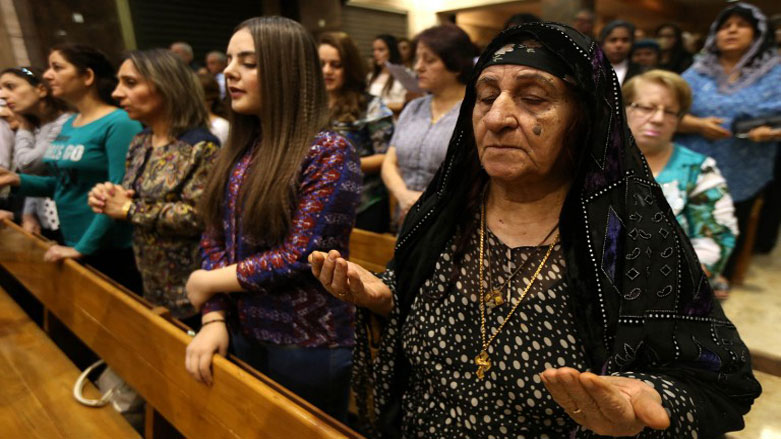Religious freedoms in Kurdistan “robust” compared to regional neighbors: Report

ERBIL, Kurdistan Region (Kurdistan24) – The U.S. Commission on International Religious Freedom (USCIRF) on Thursday released an independent report on religious minorities in the Kurdistan Region.
The report titled “Wilting in the Kurdish Sun: The Hopes and Fears of Religious Minorities in Northern Iraq,” notes that Kurdistan “remains far more welcoming and tolerant to minorities than its regional neighbors,” and expresses hope that special effort will be taken to “preserve [the] freedoms and rights” of minorities.
The chair of the USCIRF, Thomas J. Reese, stated that since the Islamic State (IS) emerged in the region, “it has committed genocide and threatened the very existence of the region’s religious minority communities.”
Among those communities are the Ezidis, Christians, Shabak and Turkmen which fled to the Kurdistan Region in 2014.
“We praise the Kurdistan Regional Government (KRG) for sheltering and protecting these oppressed groups and urge it to continue to take steps to ensure that these communities realize their rights and fully participate in society,” he added.
However, the report did offer warnings regarding the political and economic crisis. Any deterioration of the political and economic condition in the Kurdistan Region and Iraq, combined with poorly enforced protections, could put minorities increasingly at risk.
“The KRG must adapt to administering an increasingly diverse population, where previously it represented a more homogenous Sunni-Kurdish majority.”
The Kurdistan Region is home to various religious and ethnic groups. That diversity grew as internally displaced persons (IDPs) found haven in the Region while fleeing the fight against the jihadist group.
Noting that the KRG has taken positive steps by introducing protective laws, appointing religious representatives and attempting to diversify the Peshmerga, the report suggests there are “systemic biases leveled” against minorities that “prevent them from fully realizing their rights of fully participating in society.”
The report also recommends the United States and partners “encourage reforms and the strengthening of Kurdish institutions, wherever possible, in the interest of creating a robust and permanent culture of religious freedom” and “in anticipation of any possible moves toward creating a new state in the Middle East.”
The report underscored Kurdistan’s strained resources and the security situation in the region as exacerbating factors. The Kurdistan Region is home to over 1.5 million IDPs and refugees since the rise of the Islamic State in 2014.
